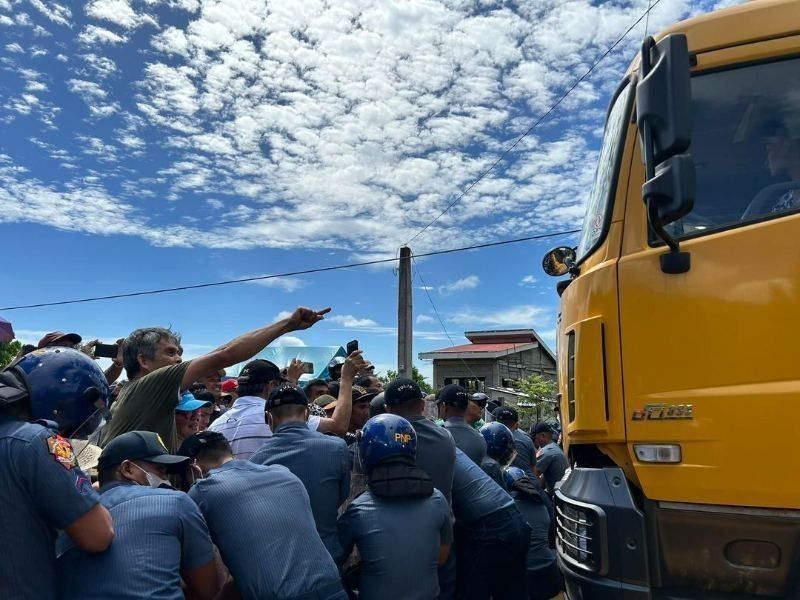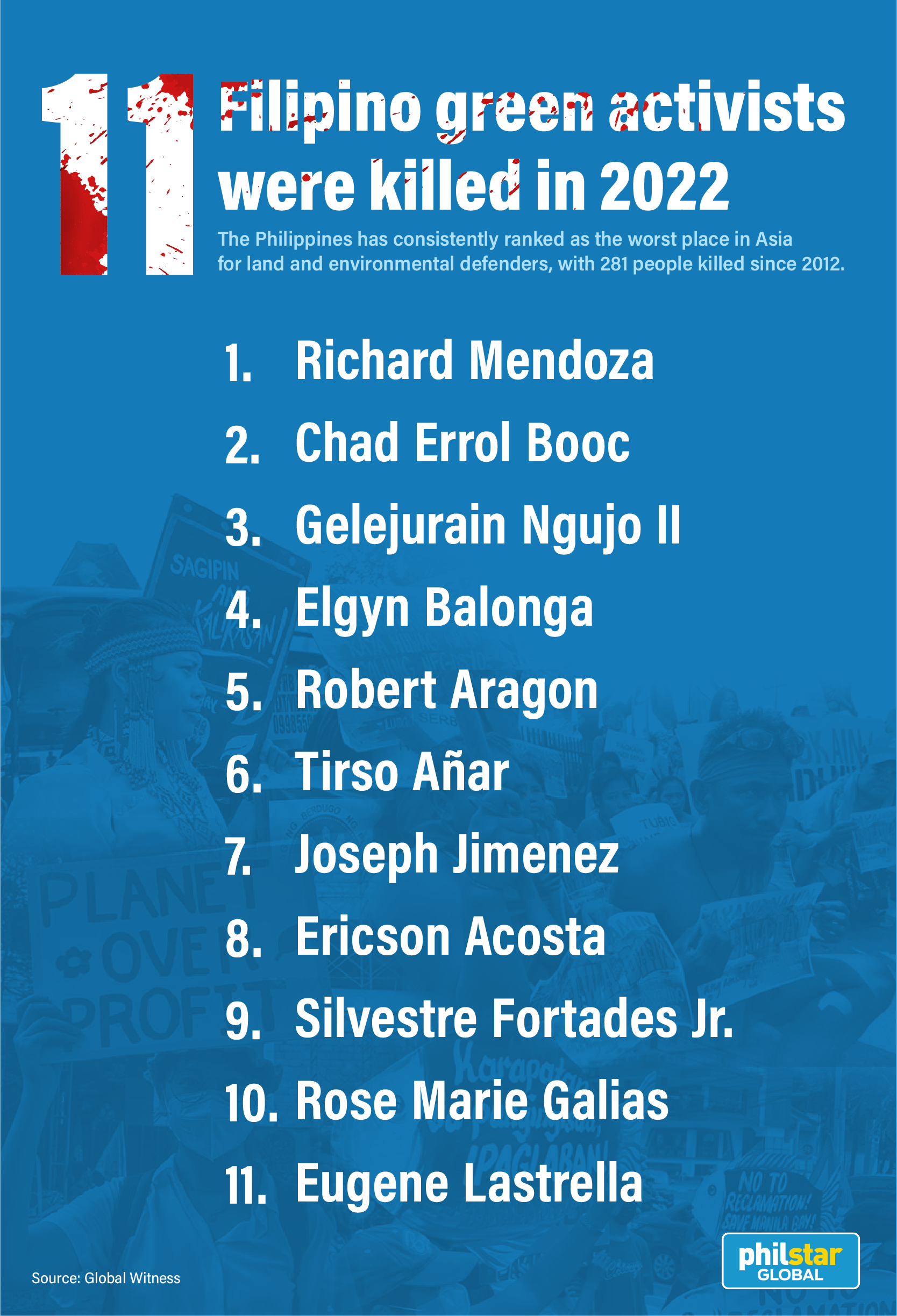For 10th straight year, Philippines remains Asia’s deadliest place to defend the environment

MANILA, Philippines — For the 10th consecutive year, the Philippines remains the deadliest country in Asia for individuals defending their land and the environment, according to new research, raising concerns among advocates who fear that the current administration’s promotion of mining and infrastructure projects will exacerbate the threats to their lives.
The Philippines has been identified as the worst place in Asia since watchdog Global Witness started reporting on the killings of land and environmental activists in 2012.
Eleven of the 16 lethal attacks in Asia last year took place in the Philippines.

Globally, the Philippines was the fifth most dangerous country for environmentalists in 2022. Colombia topped Global Witness’ ranking with 60 killings, followed by Brazil with 34, Mexico with 31 and Honduras with 14.
The latest report of the London-based watchdog, which was released Wednesday, found that at least 177 defenders lost their lives last year, or an average of one activist murdered every other day.
Indigenous peoples, who rely on their lands and natural resources for a living, accounted for more than a third of lethal attacks, with 64 killings last year.
Since 2012, 1,910 people have been killed for protecting the planet.
“All of them shared a commitment to defend their rights and keep the planet healthy. All of them paid for their courage and commitment with their lives,” Global Witness said.
It warned that the worsening climate crisis and the increasing demand for agricultural commodities, fuel and minerals “will only intensify the pressure on the environment—and those who risk their lives to defend it.”
Defending amid scramble for minerals
Around 281 land and environmental defenders have been killed in the Philippines since 2012. According to Global Witness, a third of the killings were associated with defenders who opposed mining operations.
Revitalizing the mining sector is a priority of the administration of President Ferdinand “Bongbong” Marcos Jr. following the lifting of a ban on new mining operations by his predecessor Rodrigo Duterte.
In May, Marcos called on the Association of Southeast Asian Nations to enhance regional cooperation toward boosting the region’s mineral value chain, which is essential to the transition to renewable energy.
The Philippines is the fifth most mineral-rich country in the world, producing minerals used in clean energy technologies such as copper and nickel.
The report highlighted the decades-long fight of Sibuyan Island residents against nickel exploration, which they fear will destroy the intact ecosystem of their home—known as the “Galápagos of Asia.”
The residents successfully thwarted the operations of Altai Philippines Mining Company after setting up a barricade earlier this year.
In June, the Supreme Court issued a writ of kalikasan—a legal remedy for the protection of the right to a healthy environment—against the mining firm and the Department of Environment and Natural Resources.
“The bullish promotion of extractive industries and environmentally unsustainable infrastructure calls for stronger action of environmental defenders and communities affected,” Sibuyanon environmentalist Rodne Galicha said.
He added that the involvement of politicians and their families with business interests “creates a more dangerous environment for environmental defenders.”
Vilification
In the Philippines, people and communities who protect the environment and resist destructive projects are vilified and falsely tagged as members or supporters of communist insurgency.
Environmentalists also experience harassment and some have even been abducted.
Earlier this month, Jonila Castro and Jhed Tamano, who have been active in organizing communities affected by reclamation projects in Manila Bay, were reportedly abducted. They have yet to be surfaced.
Kalikasan People’s Network for the Environment national coordinator Jon Bonifacio criticized the Marcos administration—who often talks about climate action and justice—for its silence on the “human rights crisis” that Filipino environmental defenders go through.
“There has not been any systemic reversal of Duterte-era policies that have helped make the Philippines such a dangerous place for advocates, and attacks have continued and have escalated in recent months,” Bonifacio told Philstar.com.
Bonifacio said the government agencies that engage in red-tagging sprees such as the National Task Force to End Local Communist Armed Conflict should be held accountable. He also called for the review or repeal of the Anti-Terrorism Act, which has been used and abused to criminalize environmental and land activists.
- Latest

























